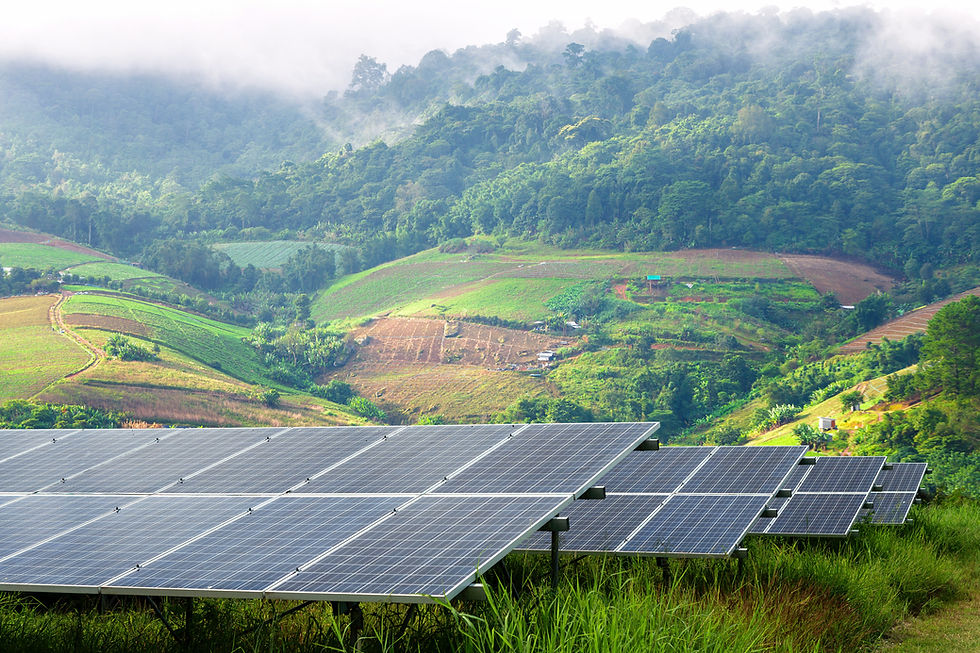Why LCA Matters: Dr. Jessica Hanafi Explains How to Measure Sustainability in a Pas FM Q&A
- Agnes Sulistya
- 18 Jul 2025
- 3 menit membaca
Editor: Sharah Saputra, Tasya Salsabilla (LCI Team)

As sustainability becomes an increasingly critical topic in business strategy, understanding frameworks like Life Cycle Assessment is more important than ever.
This interview with Dr. Jessica Hanafi, Founder of Life Cycle Indonesia, was recently broadcast across the PAS FM Network—a business radio station in Indonesia known for its focus on economic news, business talk shows, and market developments.
In this exclusive Q&A with PAS FM journalist Robert Saputra, Dr. Jessica shares in-depth insights on Life Cycle Assessment (LCA), its value for business, and its role in securing a more sustainable future, as aired on PAS FM Jakarta (92.4 FM) on 15 July 2025.
Radio interview content originally recorded in Bahasa Indonesia was translated by the author. All translations maintain conceptual equivalence with the original content.
Q: What is Life Cycle Indonesia and what do you do?
A: Life Cycle Indonesia is a sustainability consulting firm with a strong focus on Life Cycle Assessment. We work with clients across sectors—from agriculture, mining, FMCG, healthcare and so on—to quantify environmental and social impacts across a product or system’s full life cycle. Our approach is science-based and data-driven, aiming to identify hotspots and improve efficiency and sustainability. We’ve been operating for over 10 years and also have an office in Singapore.
Q: What exactly is Life Cycle Assessment (LCA)?
A: LCA is a comprehensive method used to evaluate the environmental impacts of a product or process—from raw material extraction (cradle) to disposal (grave). It goes far beyond just carbon footprint. It also looks at categories like water usage, land use, air emissions, acidification potential, human toxicity, and more. Think of it as a medical check-up, but for products. We analyze all the input-output flows throughout the product's life stages to pinpoint where sustainability improvements can be made.
Q: Why should businesses care about LCA? Isn’t it just another cost burden?
A: On the contrary, LCA often reveals opportunities for cost savings. By identifying inefficiencies—such as raw material waste or high-energy machinery—companies can reduce operational costs while minimizing environmental impact. LCA also supports export readiness, particularly in countries with strict environmental regulations like the EU and Australia, and enhances brand image. Additionally, LCA can help businesses qualify for green financing opportunities such as sustainability-linked loans and bonds.
Q: Can you give a real-life example of how LCA is applied to a product?
A: Let’s take the example of a paper coffee cup. While it may appear eco-friendly, many paper cups contain a plastic lining to prevent leaks. This makes them hard to recycle or compost. Through LCA, we track the entire product journey: from land clearing to growing trees, water and chemical use during pulp production, energy used in manufacturing, and finally to how the cup is disposed of after one use. In contrast, reusable tumblers—whether plastic or metal—have a higher initial impact but can be more sustainable in the long run if used many times. LCA helps quantify and compare these scenarios.
Q: What’s the role of product labeling in all of this?
A: Product labels are great when they accurately represent a product’s full environmental footprint. This is especially important for items that require industrial composting conditions or are difficult to recycle due to contamination. LCA helps provide that transparency, but it also depends on consumer education. For example, clean paper can be recycled, but once it’s contaminated with food, it often ends up as waste.
Q: How will LCA evolve in the future?
A: LCA is essentially a data analytics tool. As companies become more data-driven, its role will expand. Some businesses already collect operational data like energy or material use, but the key is turning that data into insights for decision-making. LCA empowers stakeholders—from supervisors and managers to CEOs and policymakers—to make informed choices based on environmental performance. In the future, LCA will be fundamental to not only business strategy but also public policy.
Q: What does sustainability really mean for you?
A: Sustainability is not a luxury—it’s about survival. For businesses, it’s about resilience and long-term continuity. But at the societal level, it’s about whether we, as humans, can continue living safely on this planet. The environmental damage we’re seeing now comes with hidden costs: respiratory illnesses, food contamination, medical bills. With LCA, we can quantify these risks and act before it’s too late—not just to sustain businesses, but to sustain life on Earth.
As environmental and social considerations become central to business performance and resilience, Life Cycle Assessment offers a scientific pathway to drive real impact—beyond compliance, toward transformation. Through this conversation, Dr. Jessica Hanafi reinforces the importance of using data and life cycle thinking to make better decisions, reduce risks, and unlock new business value.
At Life Cycle Indonesia, we help organisations across sectors through Life Cycle Assessment. Through LCA, LCI helps businesses uncover inefficiencies, make evidence-based decisions, and develop sustainability strategies, one system, one product, one decision at a time.

Komentar